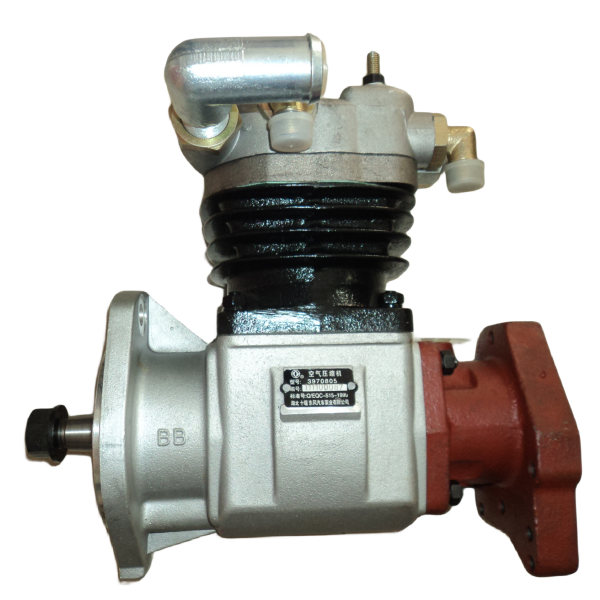Technical Analysis of Cummins Air Compressor August 7, 2023 – Posted in: Technical News
The Cummins air compressor represents a vital component within the realm of internal combustion engines, serving as a key player in the engine’s overall functionality. This technical analysis delves into the intricacies of the Cummins air compressor, exploring its design, operation, benefits, and its role in ensuring engine performance.
Design and Functionality
The Cummins air compressor is ingeniously designed to address a critical requirement of internal combustion engines: maintaining optimal air pressure for the combustion process. Operating on the principles of positive displacement, the compressor draws in ambient air and compresses it to a higher pressure before delivering it to the engine’s combustion chambers. This process facilitates efficient combustion by ensuring an adequate air-fuel mixture, resulting in improved power output and reduced emissions.
Mechanisms and Components
At the heart of the Cummins air compressor lies a precision-engineered assembly of components. The primary components include an air intake, a compressor unit, and an air outlet. A crankshaft-driven piston mechanism generates compression within the compressor unit. This piston is intricately connected to a valve system that controls the flow of air into and out of the compressor chamber.
Benefits and Advantages
The Cummins air compressor offers several benefits that enhance engine performance and efficiency:
- Optimized Combustion: By supplying compressed air at the required pressure, the air compressor ensures an ideal air-fuel ratio for combustion, leading to enhanced engine power and efficiency.
- Emission Reduction: The efficient combustion facilitated by the air compressor results in reduced emissions, aligning with modern environmental standards and regulations.
- Improved Reliability: The air compressor’s robust construction and precision engineering contribute to its reliability, reducing the risk of breakdowns and minimizing downtime.
- Fuel Efficiency: The proper air-fuel mixture achieved by the air compressor maximizes fuel efficiency, reducing operational costs and improving overall vehicle performance.
Integration and Management
Modern Cummins air compressors often feature integrated management systems that regulate their operation. Electronic controls monitor parameters such as air pressure, temperature, and engine load, adjusting compressor output accordingly. This integration enhances efficiency and allows for real-time diagnostics, contributing to proactive maintenance.
Future Trends and Innovations
As the automotive industry evolves, so does the technology surrounding air compressors. Innovations focus on improving efficiency, reducing noise, and adapting to emerging powertrain technologies, such as hybrid and electric vehicles. Variable displacement compressors and smart controls that adapt to driving conditions are anticipated to play a larger role in optimizing air compressor performance.
Conclusion
The Cummins air compressor’s technical intricacies and pivotal role in engine performance underscore its significance within the realm of internal combustion engines. Its precision design, efficient operation, and integration with modern technologies ensure that engines operate reliably, efficiently, and in compliance with environmental standards. As the automotive landscape evolves, the air compressor’s continuous evolution remains a crucial element in enhancing engine performance and contributing to a sustainable future.
